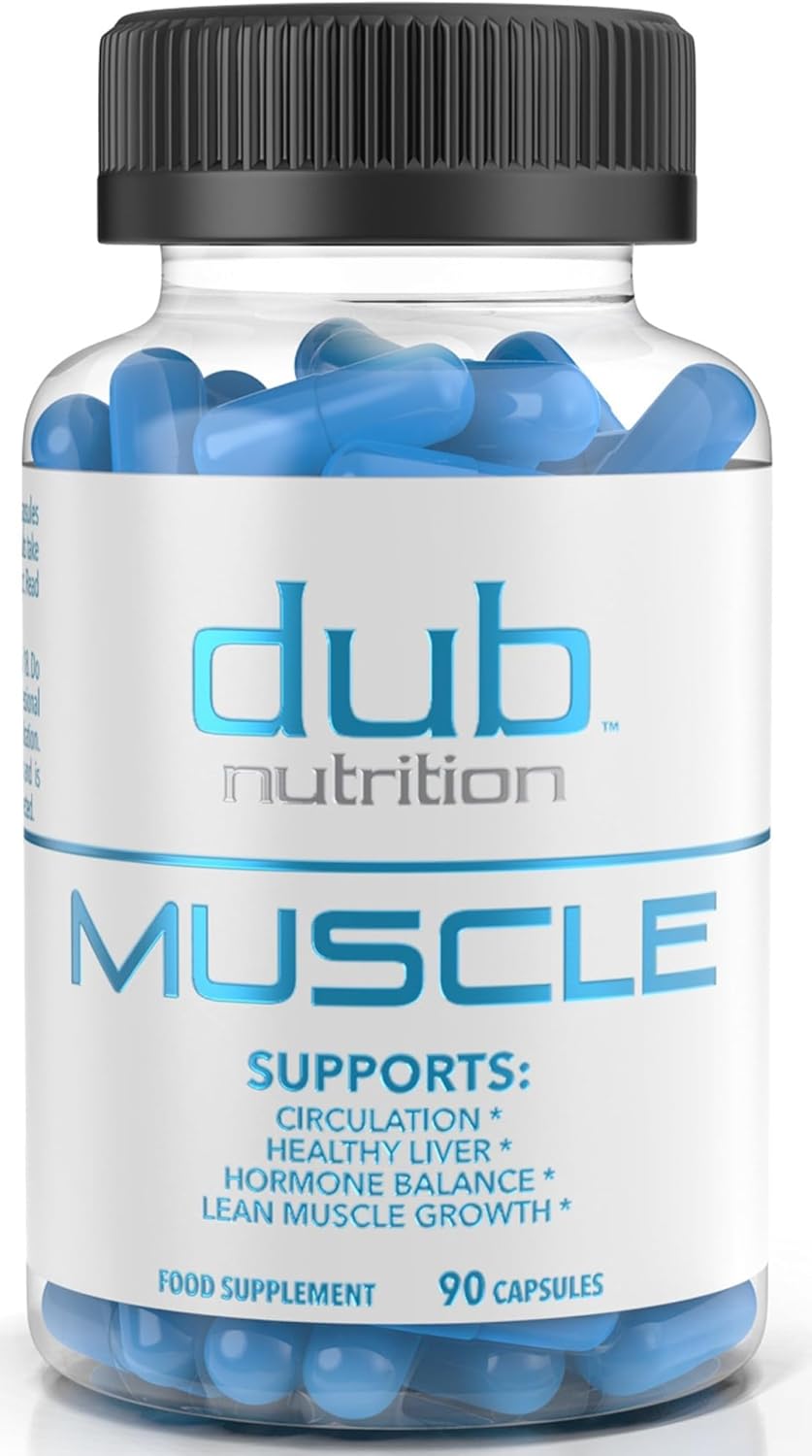
Unlock Your Muscle Growth: The Top 12 Vitamins You Need for Maximum Gains






Price: $44.99
(as of Apr 14, 2025 09:44:07 UTC - Details)
The Best Vitamins for Muscle Growth: A Comprehensive Guide
Introduction
When it comes to building muscle, many people focus on their workout routines and diet, but they often overlook the essential role that vitamins play in muscle growth. In this article, we will explore what the best vitamins for muscle growth are, and how they can help you reach your fitness goals. Whether you’re a seasoned athlete or just starting out on your fitness journey, understanding the importance of vitamins can make a significant difference. We’ll dive into various long-tail keywords related to muscle growth vitamins, providing you with practical information that you can apply right away.
The Role of Vitamins in Muscle Growth
Why Are Vitamins Important for Muscle Growth?
Vitamins are organic compounds that are essential for various bodily functions, including muscle repair and growth. They help your body convert food into energy, support your immune system, and even aid in muscle recovery after workouts. By incorporating the right vitamins into your diet, you can enhance your muscle-building efforts and improve your overall health.
The Best Vitamins for Muscle Growth: An Overview
Before we dive deeper, let’s take a look at some of the best vitamins that support muscle growth:
- Vitamin D
- Vitamin C
- Vitamin B12
- Vitamin E
- Vitamin A
Each of these vitamins plays a unique role in muscle growth, and we’ll discuss them in detail in the following sections.
Vitamin D: The Sunshine Vitamin
How Vitamin D Supports Muscle Growth
Vitamin D is often referred to as the "sunshine vitamin" because your body produces it when exposed to sunlight. This vitamin is crucial for muscle function and strength. It helps regulate calcium and phosphorus levels in your body, which are essential minerals for muscle contraction.
Sources of Vitamin D
You can obtain vitamin D from various sources, including:
- Sunlight: Aim for 15-30 minutes of sunlight exposure several times a week.
- Foods: Fatty fish (like salmon and mackerel), egg yolks, and fortified foods (like milk and cereals).
- Supplements: If you're not getting enough from sunlight and food, consider taking a vitamin D supplement.
Vitamin C: The Antioxidant Powerhouse
The Benefits of Vitamin C for Muscle Recovery
Vitamin C is well-known for its immune-boosting properties, but it also plays a vital role in muscle growth. This vitamin acts as an antioxidant, helping to reduce oxidative stress caused by intense workouts. It also aids in collagen production, which is essential for the health of your muscles and connective tissues.
Where to Find Vitamin C
Incorporate these foods into your diet to boost your vitamin C intake:
- Citrus Fruits: Oranges, grapefruits, and lemons.
- Berries: Strawberries and blueberries.
- Vegetables: Bell peppers, broccoli, and spinach.
Vitamin B12: The Energy Booster
How Vitamin B12 Affects Muscle Growth
Vitamin B12 is crucial for energy production and red blood cell formation. This vitamin helps transport oxygen to your muscles, allowing for better performance during workouts. Insufficient levels of vitamin B12 can lead to fatigue, hindering your muscle-building efforts.
Getting Enough Vitamin B12
You can find vitamin B12 in:
- Animal Products: Meat, fish, dairy products, and eggs.
- Fortified Foods: Look for fortified cereals or plant-based milk if you’re vegetarian or vegan.
Vitamin E: The Muscle Protector
The Role of Vitamin E in Muscle Health
Vitamin E is another powerful antioxidant that helps protect your muscles from oxidative damage. This vitamin supports the immune system and promotes healthy blood circulation, which is essential for muscle recovery and growth.
Best Sources of Vitamin E
Incorporate these foods into your meals for a boost of vitamin E:
- Nuts and Seeds: Almonds, sunflower seeds, and hazelnuts.
- Vegetable Oils: Sunflower oil, safflower oil, and wheat germ oil.
- Green Leafy Vegetables: Spinach and kale.
Vitamin A: The Muscle Growth Catalyst
The Importance of Vitamin A for Muscle Growth
Vitamin A is vital for cell growth and differentiation, making it essential for muscle recovery and growth. This vitamin also supports your immune system and helps maintain healthy vision, which is important for overall athletic performance.
Sources of Vitamin A
You can find vitamin A in:
- Animal Products: Liver, fish, and dairy.
- Fruits and Vegetables: Carrots, sweet potatoes, and dark leafy greens.
How to Incorporate These Vitamins into Your Diet
Creating a Balanced Meal Plan
To maximize muscle growth, it’s essential to create a balanced meal plan that includes a variety of foods rich in these vitamins. Here are some tips to help you get started:
- Diverse Diet: Include a wide range of fruits, vegetables, lean proteins, and healthy fats.
- Meal Prep: Prepare meals in advance to ensure you’re getting all the necessary nutrients.
- Stay Hydrated: Drink plenty of water to support overall health and muscle function.
Supplements: A Useful Addition
While it’s best to obtain vitamins from food sources, supplements can be a helpful addition if you struggle to meet your needs through diet alone. Always consult with a healthcare professional before starting any new supplement regimen.
Conclusion
In summary, the best vitamins for muscle growth—Vitamin D, C, B12, E, and A—play a crucial role in supporting your fitness goals. By incorporating these vitamins into your diet through food and, if necessary, supplements, you can enhance your muscle-building efforts and improve your overall health. Remember to focus on a balanced diet and listen to your body’s needs as you continue your journey toward muscle growth. With the right vitamins in your corner, you’ll be well on your way to achieving your fitness aspirations!
Suitable for All: Ideal For Men and Women of all ages